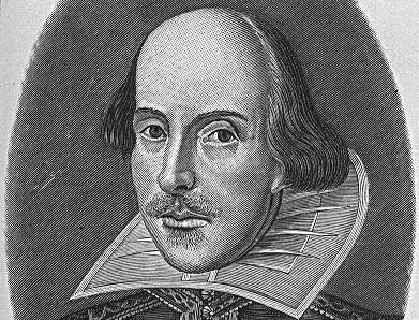William Shakespeare 450th Birthday: From 'Upstart Crow' to Global Cultural Icon

The 450<sup>th anniversary of the birth of Shakespeare marks the birth date of one of Britain's greatest cultural exports. From Kenneth Branagh's Henry V in 1989 to David Tennant's 2012 portrayal of Richard II, the Bard of Avon's work has never fallen out of fashion from the beginning of his legacy in the late 16th century. With captivating plots of murder and betrayal, combined with love, secrets and racism, Shakespeare's plays strike true to areas of the modern world as well as the time they were written in.
Shakespeare was born in Stratford-upon-Avon on 23 April 1564. His father, John Shakespeare, was a glove-maker and a wool merchant, and his mother, Mary Arden, was the daughter of a wealthy landowner from Wilmcote in South Warwickshire. It is believed Shakespeare was educated at the King Edward VI Grammar School in Stratford.
Having married Anne Hathaway at the age of 18, Shakespeare fled to London to pursue a career between 1585 and 1592. It was during this period that Shakespeare started his career in the city as an actor, playwright and part-owner of a playing company called the Lord Chamberlain's Men – later renamed as the King's Company when James succeeded to the throne. The company, whose actors included Richard Burbage, acquired interests in two theatres in the Southwark borough of London: the Globe and the Blackfriars.
Yet Shakespeare's rise to stratospheric success was not without criticism. At the beginning of his career as an actor and playwright, Robert Greene, an English dramatist, famously described the Bard as nothing more than an "upstart crow" in his 1592 pamphlet Greenes, Groats-worth of Witte, bought with a million of Repentance. He wrote: "There is an upstart crow beautified with our feathers that, with his 'tiger's heart wrapped in a player's hide', supposes he is as well able to bombast out a blank verse as the best of you." Greene damningly refers to Shakespeare as "Johannes Factotum" – a "Jack of all trades".
Despite clearly ruffling feathers, Shakespeare continued to be a prolific playwright. Records of his first plays began to appear around 1594, from which time he produced around two scripts a year until 1611. In 1593 and 1593, his first poems, Venus and Adonis and The Rape of Lucrece, were published. It is believed he wrote many of his sonnets during this time.
His hard work began to pay off – and despite a lack of records, it is believed that Shakespeare commissioned and paid for his father to be granted a coat of arms by 1596. This was just one sign that Shakespeare had begun to prosper, following the publication of his first plays. One year afterwards, in 1597, Shakespeare purchased New Place, a house in Stratford, but did not move into the property until 1610.
A selection of Shakespeare's plays were published in quarto editions from 1594. By 1598, his name had become a selling point and began to appear on the title pages. His earlier plays consisted mainly of histories and comedies such as Henry VI, Titus Andronicus, A Midsummer Night's Dream, The Merchant of Venus and Richard II. Yet Romeo and Juliet, one of Shakespeare's most famous tragedies, was also published during this time.
By the final years of Elizabeth I's reign, Shakespeare was well-established as a poet and playwright. Having been called upon to perform at the Queen's court, his continuing success enabled Shakespeare to move to the upmarket Silver Street in 1602 – near to the modern day Barbican. It is here where he wrote the tragedies Othello, Hamlet, King Lear and Macbeth.
Nicholas Rowe was the first biographer to record that Shakespeare had retired to Stratford "some years before his death". He was still working as an actor in London in 1608, having been recorded performing at the Blackfriars theatre by Cuthbert Burbage, and in a document dated 7 June 1609, Shakespeare is described as being "generosus nuper in curia domini Jacobi" – "gentleman, recently at the court of King James". In 1609, however, the bubonic plague epidemic repeatedly closed playhouses across London.
After 1610, Shakespeare wrote fewer plays, and none are attributed to him after 1613. His last three plays were collaborations, possibly with John Fletcher, who succeeded him as the house playwright for the King's Men. Shakespeare died on 23 April 1616 and was buried in the chancel of the Holy Trinity Church in Stratford-upon-Avon.
© Copyright IBTimes 2025. All rights reserved.




















